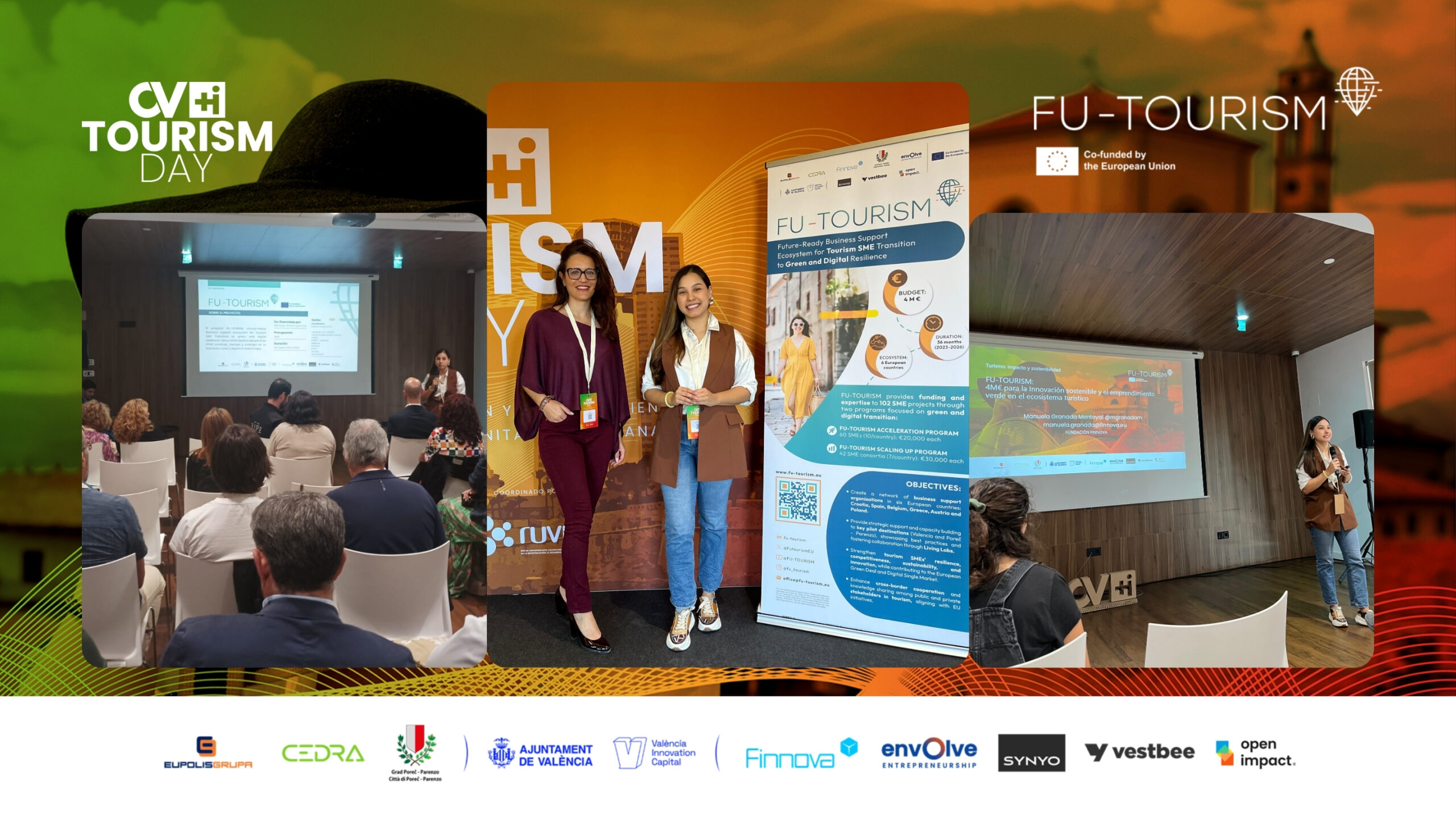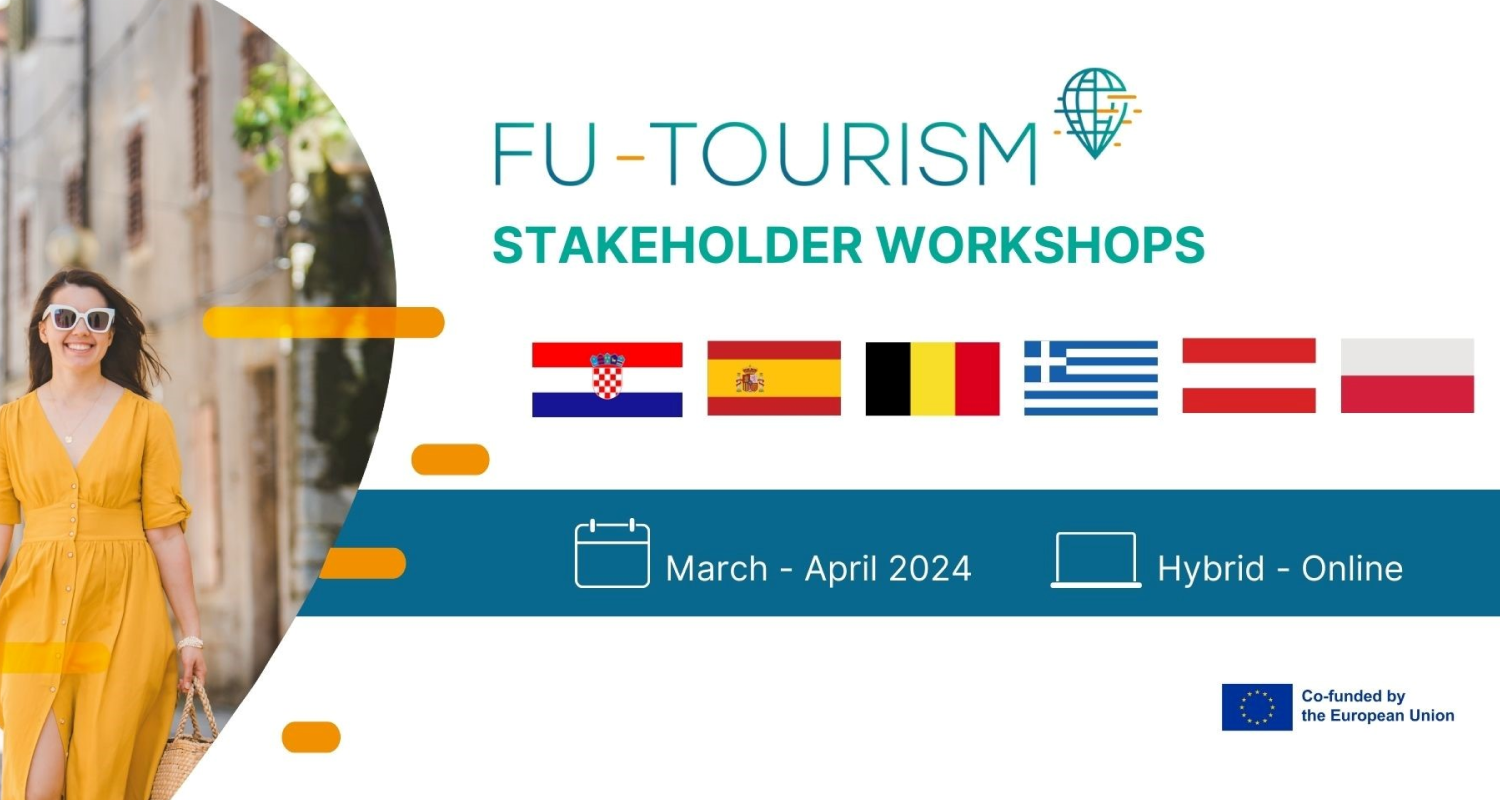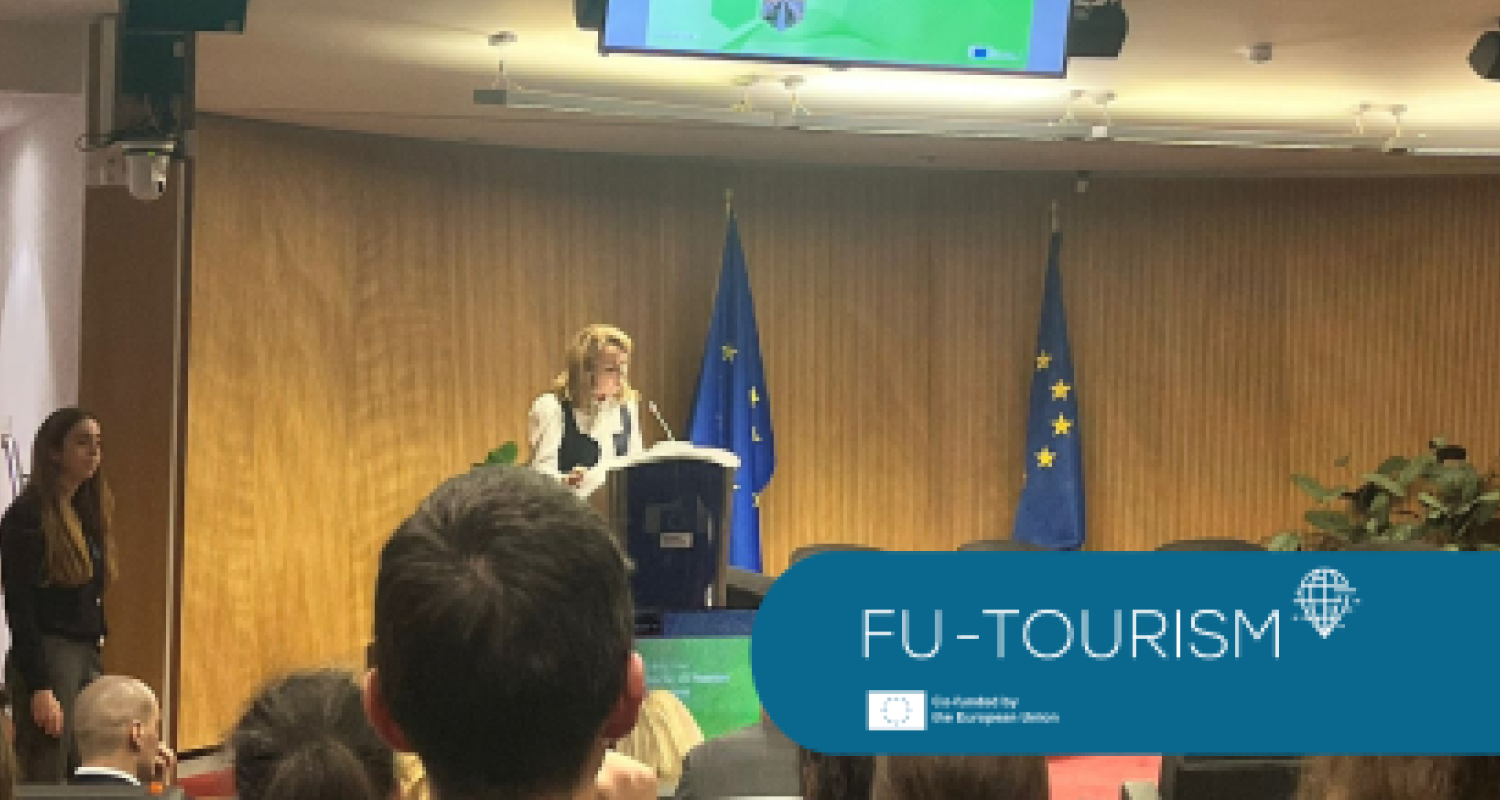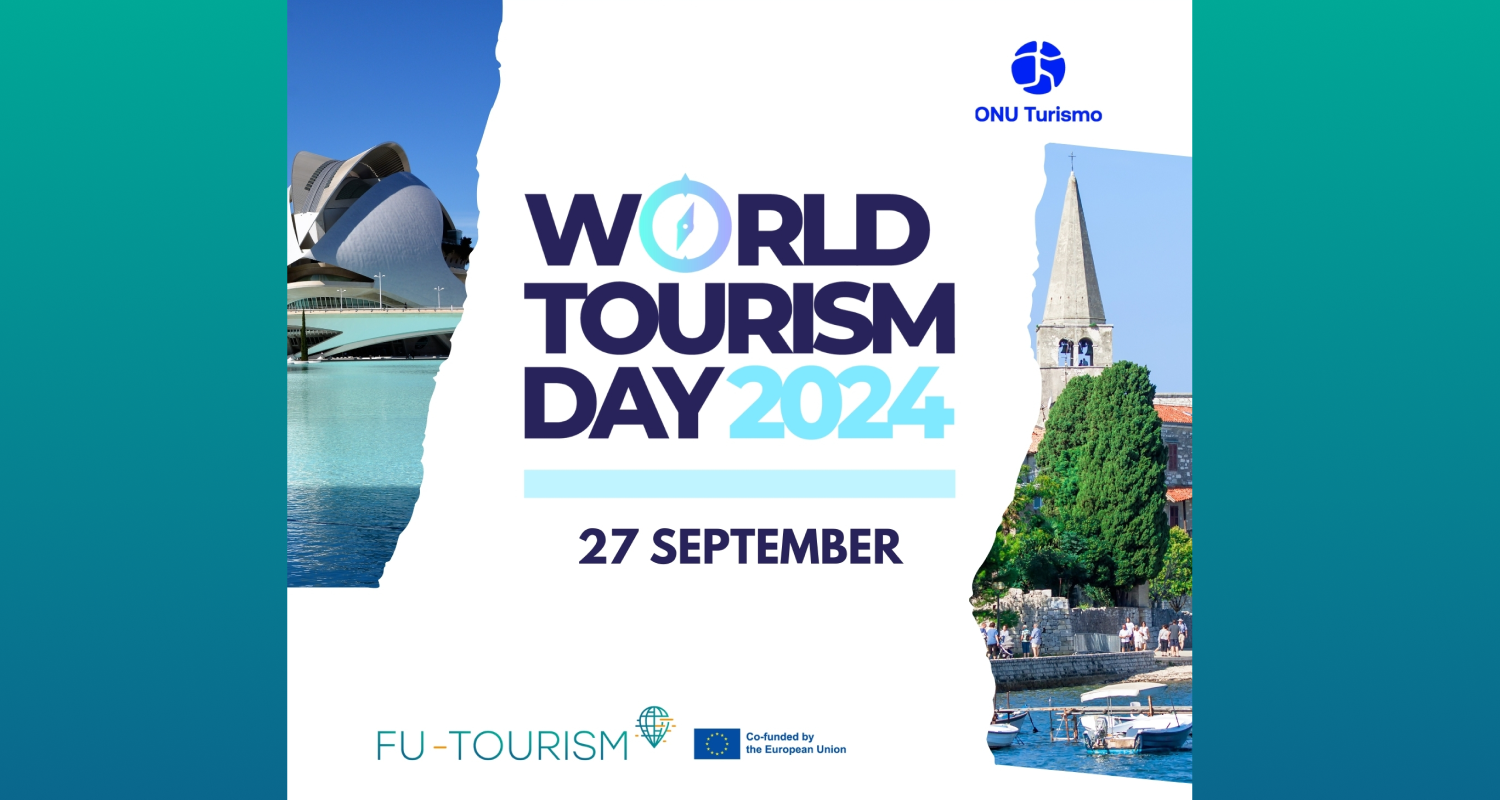
The transition to sustainability and digitalization takes center stage at the CV + i Tourism Day in Benidorm with the fu-tourism project
- FU-TOURISM participated in the CV + i Tourism Day in Benidorm, Spain, on October 17.
- Organized by the Generalitat Valenciana, this was the region’s inaugural event focused on research, innovation, and entrepreneurship in tourism, bringing together experts, startups, and institutions to discuss emerging trends in the industry.
- The Finnova Foundation, Belgian partner, attended the event to deliver a presentation, establish contacts, and connect with other stakeholders in the tourism sector.
On October 17, Benidorm, city in Spain, became the epicenter of tourism innovation during the #CViTourismDay, an event organized by the Generalitat Valenciana and coordinated by the Network of Valencian Universities for the promotion of R&D&I (RUVID). Held at the Grand Luxor hotel in the Terra Mítica park, the meeting brought together prominent experts, businesses, and representatives from universities and public institutions to explore how sustainability, innovation, and research can transform tourism.
The FU-TOURISM project, funded with €4 million through the Single Market Programme (SMP), actively participated in this event to address the crucial role that digitalization, sustainability, and innovation play in transforming the tourism industry.
Manuela Granada Montoya, Communication and European Project Officer at the Finnova Foundation, partner of the FU-TOURISM project, was one of the speakers at the round table entitled ‘Tourism: Impact and Sustainability’. During her intervention, she highlighted how FU-TOURISM empowers tourism SMEs to improve their sustainability, resilience and innovation by facilitating access to support networks, funding opportunities and expertise.
Additionally, the importance of synergies and commitment with actors in the Spanish tourism ecosystem was emphasized, highlighting the collaboration with the Ajuntament de València and its innovation center, Valencia Innovation Capital, both partners in the FU-TOURISM project and based in the Valencia Community, which was the epicenter of this discussion.
Among the participating projects, FU-TOURISM had a prominent presence, considering its significant impact: of the 35 proposals submitted in the European Commission’s call for the Single Market Programme “SMP-COSME-2022-TOURSME,” only 6 were approved. FU-TOURISM stands out among them for having the largest budget, underscoring its importance for the business sector and the recognition of its comprehensive approach to sustainability and digitalization in the tourism sector.
Within the project, the city of Valencia, represented by the Ayuntamiento de Valencia, acts as a Destination Management Organization (DMO) to support SMEs through collaboration in the 4-Helix Living Labs, which promote cooperation among public administrations, businesses, universities, and civil society, thus offering a valuable opportunity for connection among the stakeholders involved in the event.
Through its participation, FU-TOURISM reaffirms its commitment to building support networks across Europe that promote a more sustainable, resilient, and competitive tourism sector. Additionally, the project aims to enhance its visibility, establish valuable contacts, and strengthen its network of stakeholders in the participating countries.
ECOSYSTEM OF SUPPORT FOR TOURISM SMES
The FU-TOURISM project, with a duration of 36 months (2023-2026), is led by the EUPOLIS group (Croatia) with CEDRA as an affiliated entity and involves a consortium of eight entities: the City of Valencia (Spain) and Valencia Innovation Capital as its affiliated entity, the City of Poreč-Parenzo (Croatia), FINNOVA (Belgium), Envolve (Greece), SYNYO (Austria), Vestbee (Poland), and Open Impact (Italy).
FU-TOURISM aims to develop an ecosystem of support for small and medium-sized enterprises (SMEs) in the tourism sector, fostering greater cooperation in innovation among these businesses, incubators, and specialized accelerators.
The project will launch an acceleration program that will identify and support a total of 102 tourism SMEs from the six participating countries, offering services related to sustainability, digitalization, the development of inclusive business models, and the provision of direct financial support.
During this program, 10 SMEs per country will be transparently and openly selected to receive intensive support for six months and a grant of €20,000 each. In addition, the Scaling Up program will support 42 SME consortia (7 per country), providing each with a grant of €30,000, along with the corresponding business advice.




